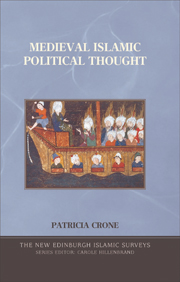Preface
Published online by Cambridge University Press: 05 August 2013
Summary
Political thought may be broadly identified as thought about power formulated in a prescriptive rather than a descriptive vein: how should power be distributed, to what uses should it be put? Of power there are innumerable types, but political thought is primarily concerned with just one: that exercised by the governmental agency above the level of family, village, and tribe that we know as the state. It is however difficult to think about the state without attention to the social order on which it rests, and it is quite impossible to do so without considering its relationship with other organizations coordinating human activities above the domestic and local levels. Of such organizations there are many today, some nationwide and others international or global, but in a medieval context they were few and far between. Most associations in those days were local, and usually kin-based. Coordinating people's activities above the level of village or kin was difficult due to slow means of communication, poverty, local diversity, and lack of trust. It could be done by force: this was the typical manner in which the state established itself. But it could also be done, or assisted, by religion, which offered a common idiom, shared ideals and trust, and which was accordingly the main source of organization transcending locality and kin apart from the state. In the Islamic world it was originally the source of the state itself.
- Type
- Chapter
- Information
- Medieval Islamic Political Thought , pp. viii - xPublisher: Edinburgh University PressPrint publication year: 2004

